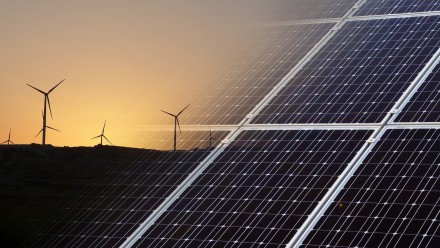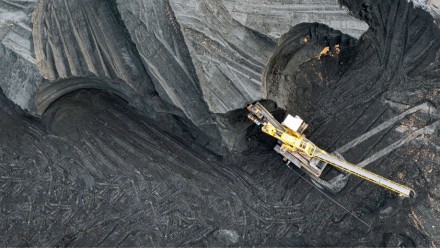Energy economics and policy
Expertise in energy economics and policy at ANU is concentrated in the Crawford School of Public Policy and the Research School of Economics and draws on disciplinary strengths in economics and political science.
Economics and policy for zero-carbon energy
The Centre for Climate and Energy Policy (CCEP) anchors a network of Australian and international researchers providing insights on the economics of climate change, its implications for public policy, and the design of policies for zero-carbon energy systems. Professor Frank Jotzo, Director of CCEP, leads a collaborative research program with leading Chinese universities on China’s climate change policies and energy sector reforms, funded partially by an Australian government grant. Topics of joint research include prospects for China’s emissions trading scheme and the economics of decarbonising China’s energy system.
The Climate and Energy Program of the Centre for Applied Macroeconomic Analysis (CAMA) is an international network of scholars working in climate and energy, integrated with the Climate and Energy Economics Project at the Brookings Institution in Washington DC. CAMA hosts the G-Cubed model, an international macroeconomic model developed specifically for analysing climate policy scenarios. The model is used by governments and agencies around the world.
A key focus of economics research within the cluster is how to design energy-sector policies and approaches to deliver reliable, affordable, and clean energy.
Energy politics and policies
A second area of research focus is the political context of domestic and international energy issues, and implications for policy. Current interests include:
- The politics of climate change negotiations
- How and why energy politics and policies are changing in response to technological change and climate change
- The democratic challenges associated with energy reforms, including questions of effective citizen engagement for public legitimacy
- Policy design for cross-border trade in zero-carbon products.
Leaders
Researchers
- Associate Professor Emma Aisbett
- Dr Hina Aslam
- Emeritus Professor Kenneth Baldwin
- Dr Maureen Boyle
- Professor Robert Breunig
- Professor Paul Burke
- Stephen Bygrave
- Emeritus Professor Bruce Chapman
- Associate Professor Bec Colvin
- Emeritus Professor Robert Costanza
- Dr Ivana Damjanovic
- Dr Priya Dev
- Dr Thang Do
- Emeritus Professor Peter Drahos
- Dr Reza Fazeli
- Dr Edwina Fingleton-Smith
- Professor Sharon Friel
- Dr Jorrit Gosens
- Emeritus Professor Neil Gunningham
- Dr Shan (Dora) He
- Professor Carolyn Hendriks
- Dr Bernd Heubeck
- Honorary Professor John Hewson
- Professor Llewelyn Hughes
- Dr José Iria
- Karel Janda
- Professor Frank Jotzo
- Emeritus Professor Kaliappa Kalirajan
- Associate Professor Andrew Kennedy
- Dr Niraj Lal
- Dr Thomas Longden
- Professor Andrew Macintosh
- Brenda Martin
- Dr Hiroshi Matsushima
- Professor Warwick McKibbin
- Dr Jessie Moritz
- Anna Nadolny
- Dr Kirill Nourzhanov
- Dr Maxfield Peterson
- Associate Professor John (Jack) Pezzey
- Associate Professor Ben Phillips
- Dr Mousami Prasad
- Associate Professor Ottavio Quirico
- Associate Professor Maria Racionero
- Dr Hedda Ransan-Cooper
- Professor Martin Richardson
- Emeritus Professor Libby Robin
- Dr Emerson Sanchez
- Dr Abidah Setyowati
- Associate Professor Esmé Shirlow
- Professor Ligang Song
- Professor David Stern
- Dr Bjorn Sturmberg
- Ben Weise
- Dr Lee White
- Associate Professor Yixiao Zhou
Students
- Harry Armstrong-Thawley
- Anna Cain
- Kevin Chadwick
- Debasish Das
- Nikolai Drahos
- David Firnando Silalahi
- Adrian Hindes
- Chengzhe (Kevan) Li
- Hannah Lord
- Fabienne Rioux-Gobeil
- Marc Torra
- Sally Wilson
- Hongzhang Xu
Professional staff
2022
National accounting systems as a foundation for embedded emissions accounting in trade-related climate policies, Alison Reeve, Emma Aisbett, Journal of Cleaner Production.
Recognizing the role of uncertainties in the transition to renewable hydrogen, Reza Fazeli, Fiona J Beck, and Matthew Stocks, International Journal of Hydrogen Energy.
Who cares? How care practices uphold the decentralised energy order, Kathryn Lucas-Healey, Hedda Ransan-Cooper, Hugo Temby, A. Wendy Russell, Buildings & Cities.
Policy options for offshore wind power in Vietnam, Thang Nam Do, Paul J. Burke, Llewelyn Hughes, Ta Dinh Thi, Marine Policy.
Why are charging stations associated with electric vehicle adoption? Untangling effects in three United States metropolitan areas, Lee V White, Andre L Carrel, Wei Shi, Nicole D Sintov, Energy Research & Social Science.
The role of human influences on adoption and rejection of energy technology: A systematised critical review of the literature on household energy transitions, Kevin Chadwick, Rebekah Russell-Bennett, Nicholas Biddle, Energy Research & Social Science.
Adaptive responses: the effects of temperature levels on residential electricity use in China, Meixuan Teng, Hua Liao, Paul J Burke, Tianqi Chen and Chen Zhang, Climatic Change.
Contributing to regional decarbonization: Australia's potential to supply zero-carbon commodities to the Asia-Pacific, Paul J Burke, Fiona J Beck, Emma Aisbett, Kenneth G H Baldwin, Matthew Stocks, John Pye, Mahesh Venkataraman, Janet Hunt, Xuemei Bai, Energy.
Is ASEAN ready to move to multilateral cross-border electricity trade?, Thang Nam Do & Paul J Burke, Asia Pacific Viewpoint.
From natural gas to electric appliances: Energy use and emissions implications in Australian homes, Mara Hammerle & Paul J Burke, Energy Economics.
China’s decarbonization and energy security plans will reduce seaborne coal imports: Results from an installation-level model, Jorrit Gosens, Alex B H Turnbull, Frank Jotzo, Joule.
Zero-carbon steel production: The opportunities and role for Australia, Mahesh Venkataraman, Zsuzsanna Csereklyei, Emma Aisbett, Alireza Rahbari, Frank Jotzo, Michael Lord, John Pye, Energy Policy.
Intellectual Property and International Clean Technology Diffusion: Pathways and Prospects, Wenting Cheng, Asian Journal of International Law.
Renewable hydrogen will be produced on land traditionally owned by First Nations people: will its owners benefit?, Lily O’Neill, Fiona J Beck, Wenting Cheng, Australian Environment Review.
Local residents' policy preferences in an energy contested region – The Upper Hunter, Australia - ScienceDirect, R M Colvin, E Przybyszewski, Energy Policy.
How Green Are the National Hydrogen Strategies?, Wenting Cheng and Sora Lee, Sustainability.
‘Clean’ hydrogen? – Comparing the emissions and costs of fossil fuels versus renewable electricity based hydrogen, Thomas Longden, Fiona J Beck, Frank Jotzo, Richard Andrews, Mousami Prasad, Applied Energy.
2021
Energy insecurity during temperature extremes in remote Australia, Thomas Longden, Simon Quilty, Brad Riley, Lee V. White, Michael Klerck, Vanessa Napaltjari Davis & Norman Frank Jupurrurla, Nature Energy.









